Finland / Suomen tasavalta / Republiken Finland – Let’s explore here
What’s it like in Finland?
Finland is a Scandinavian country in the north of Europe, consisting mainly of very large forests and lakes. There are about 180,000 lakes, most of which are in the Archipelago Sea, and a similar number of islands. The forests take up almost 80% of the land! The highest point is Halti fell in the far north east of the country, on the border with Norway, at 4,344 ft (1,324 m) above sea level.
Only Iceland has a capital city more northerly than Finland’s capital, Helsinki. The population is about 5½ million, which means that you are often wondering where everyone is, as the roads and towns are so empty!
A bit about the history of Finland
Finland has a unique history shaped by its geographical location between Sweden and Russia, as well as its diverse cultural influences.
Early History and Swedish Rule
Finland’s earliest inhabitants date back to prehistoric times, and the region was inhabited by Finno-Ugric peoples. In the Middle Ages, Finland became part of the Kingdom of Sweden, and Swedish rule lasted for several centuries. During this period, Finland’s culture was heavily influenced by Swedish governance and Christianity.
Russian Rule
In 1809, after Sweden’s defeat by Russia in the Finnish War, Finland was ceded to the Russian Empire. It was made an autonomous Grand Duchy under the Russian Tsar, with Finland retaining its own laws, language, and customs. While Finland had significant self-rule, it was still under Russian control.
Independence
During the early 20th century, as the Russian Empire weakened, Finland declared its independence on December 6, 1917, following the Russian Revolution. The declaration was followed by a brief civil war in 1918 between socialist Reds and conservative Whites, the latter of whom emerged victorious. Finland then became a republic.
Interwar Period and WWII
In the interwar period, Finland developed into a stable democratic republic but faced challenges from its large neighbour, the Soviet Union. In 1939, the Soviet Union invaded Finland, leading to the Winter War (1939-1940). Although Finland fought hard, it was forced to cede territory to the USSR in the Moscow Peace Treaty. Finland later aligned with Nazi Germany during World War II in the Continuation War (1941-1944) against the Soviet Union. After the war, Finland was forced to relinquish more land to the USSR and adopt a policy of neutrality.
Post-War and Modern Finland
Following World War II, Finland established a strong democracy and pursued policies of neutrality, particularly during the Cold War. It maintained a balance between the West and the Soviet Union, despite being heavily influenced by the latter. Finland’s economy grew rapidly in the post-war period, and it became one of the wealthiest countries in Europe by the 1990s.
In 1995, Finland joined the European Union and has since become known for its high standard of living, progressive social policies, and strong education system. Finland remains a neutral, stable, and prosperous country with a high level of global competitiveness. Currently Finland is one of the fastest growing countries in terms of wealth, and everything is super expensive!
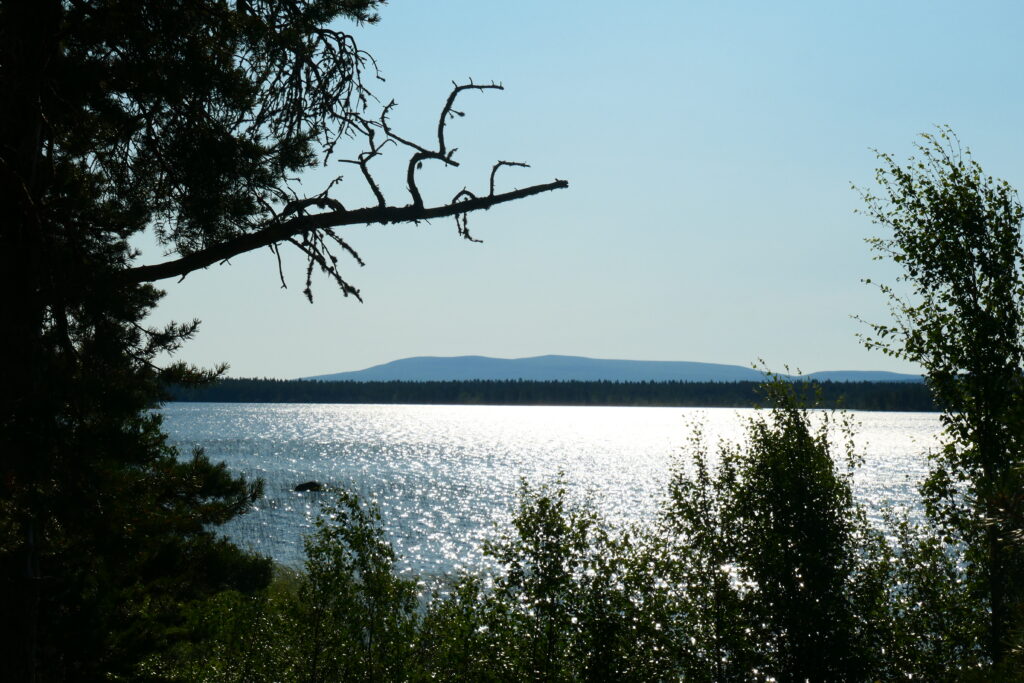
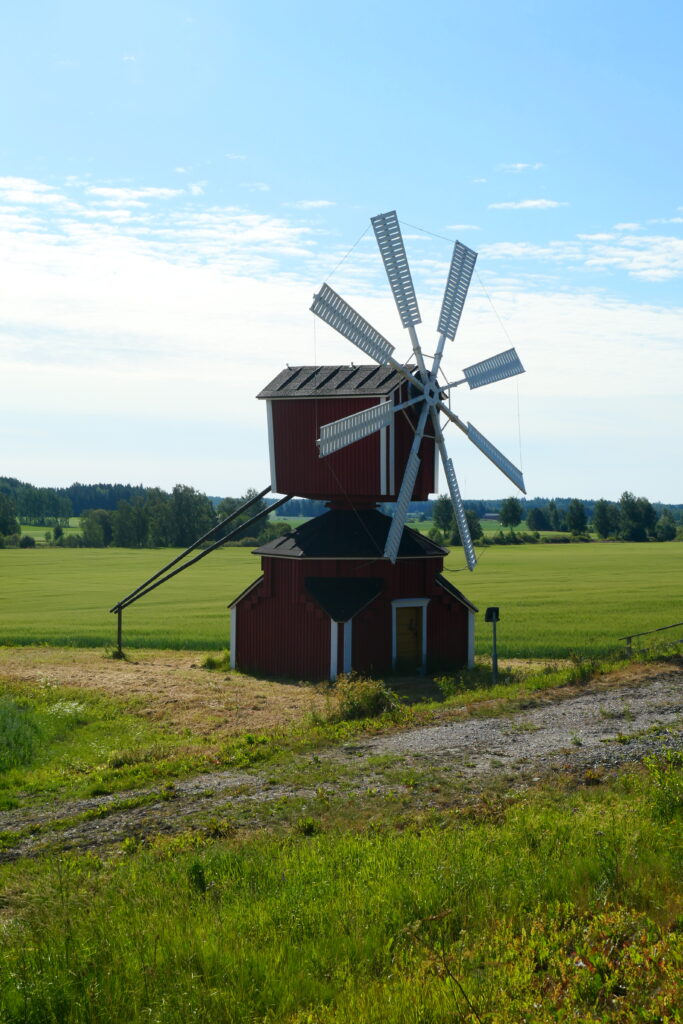
Finland road trip
We’ve created a blog for our road trip in Finland. You may find it helpful, and you may pick up some tips, or more likely mistakes not to make that we’ve made 😉 Our Finnish road trip was part of a much larger European road trip.
The north
On our Finnish road trip we travelled from Norkapp, at the top of Norway, way inside the Arctic Circle, all the way down through the north lands of the country to Inari and Kemijärvi. These northern territories are very different from those in the centre and south of the country, both in the terrain and the appearance of the wealth of the inhabitants. It’s a really interesting place to visit, although the roads are long and straight.
The Gulf of Bothnia
Al of the towns and cities around the Gulf of Bothnia appear much richer than in the north, and the coast is really pretty. We drove to Kemi, Oulu, Pattijoki and Vaasa, the latter of which is a brilliant, happy feeling, university town. There was a large festival going on when we were there, and everyone seemed to be in a really buoyant mood 🙂
The capital
From there we drove down to the the capital, Helsinki, on the southern tip of the country, before moving on to Estonia. Helsinki is fantastic, and has a brilliant inner city camp site, that every capital should emulate. The capital has it all and is another to add to your bucket list.
Map of our road trip through Finland
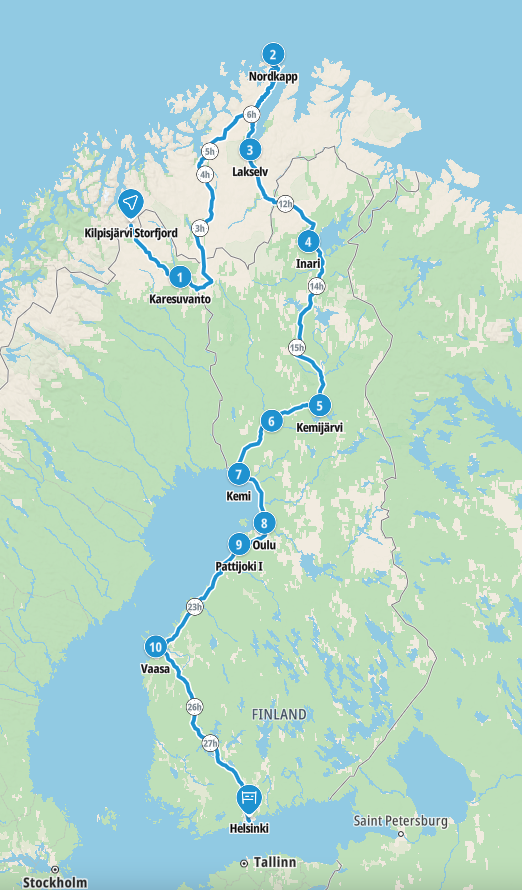
This is a map of our Finnish road trip.
Our route took us from Kilpisjärvi – Kaeresuvanto – Kivilompolo. Karigasniemi – Inari – Kemijärvi – Rovaniemi – Kemi – Oulu – Pattijoki / Raahe – Vaasa – Helsinki
What’s it like in Finland?
Finland is a massive country and everyone we met was super friendly. There are definitely better places than others, as is the case with all countries. There seems to be quite a wealth disparity between the south and the north. Many of the towns around the Gulf have some lovely squares with café culture, whereas in the north, many of the towns appear to be quite old-school Eastern bloc! It’s as if some of the more northerly places have been left to fall into ruin, or as if the monies haven’t got round to those areas for renovation yet!
Like Sweden, there’s an enormous amount of forest, and even more lakes! Thankfully though it doesn’t rain as much as Sweden! As it’s summer we also found that in the north particularly the flies and mosquitoes are really pretty aggressive, especially near to lakes. So whilst the lakes look enticing, as soon as you exit the car, from out of nowhere, you’re attacked! They bite like crazy and do not let go just by shaking a limb! Whenever we set up camp, the mesh windows really emphasised just how many were out there to get us – really shocking!
This trip definitely improved our knowledge of this country, and enabled us to meet some really interesting people. We’ve also created a blog which you may find insightful for your travels?! 🙂
Our favourite places in Finland
These are some of the best places that we explored on our road trip through Finland. We’ve put them in alphabetical order.
Helsinki
Helsinki is a beautiful capital city that’s just so easy to get around! Excellent metro system. Really friendly people! Masses to see and do – amazing! It really is one of our favourite cities.
It’s a vibrant and cosmopolitan city located along the Baltic Sea. Known for its striking blend of modern design, historical landmarks, and natural beauty, Helsinki offers a unique urban experience. Some of our favourite sites are the Helsinki Cathedral, and all around the city centre, with its lush green spaces, cafés and restaurants. With its rich culture and welcoming atmosphere, Helsinki is a must-visit destination in northern Europe.
Helsinki camping

We stayed in the amazing Rastila Camp site in Helsinki itself. Every capital city should have a camp site as clean, safe and good value as Rastila Camping.
Everyone was friendly, everyone spoke English, and it’s right next to the metro to take you to the centre, incredible!
Helsinki Cathedral


Helsinki city centre
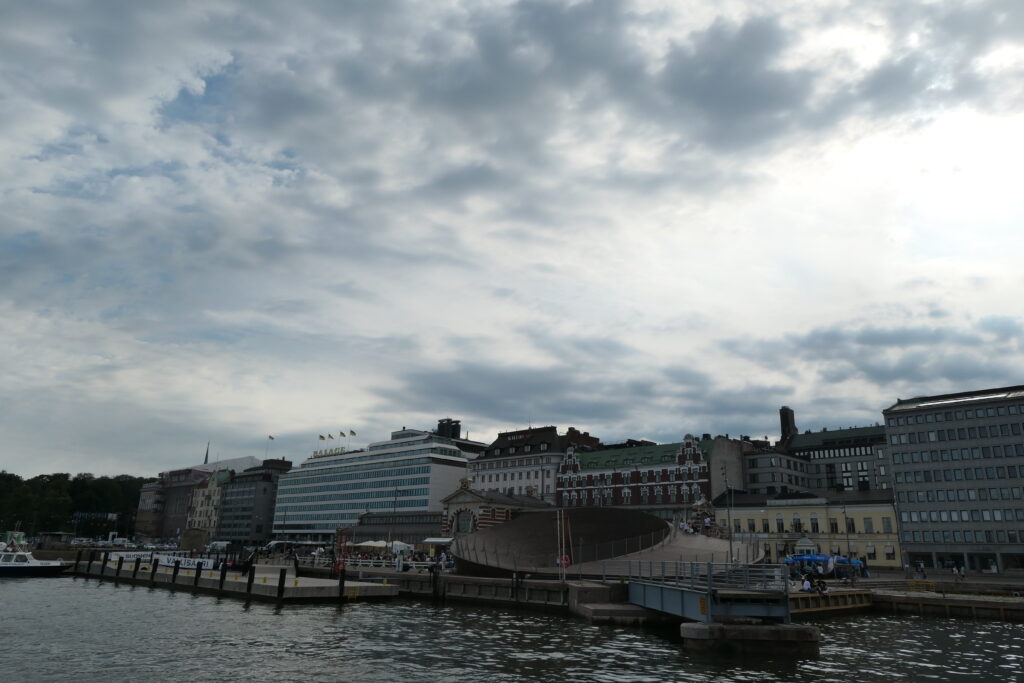


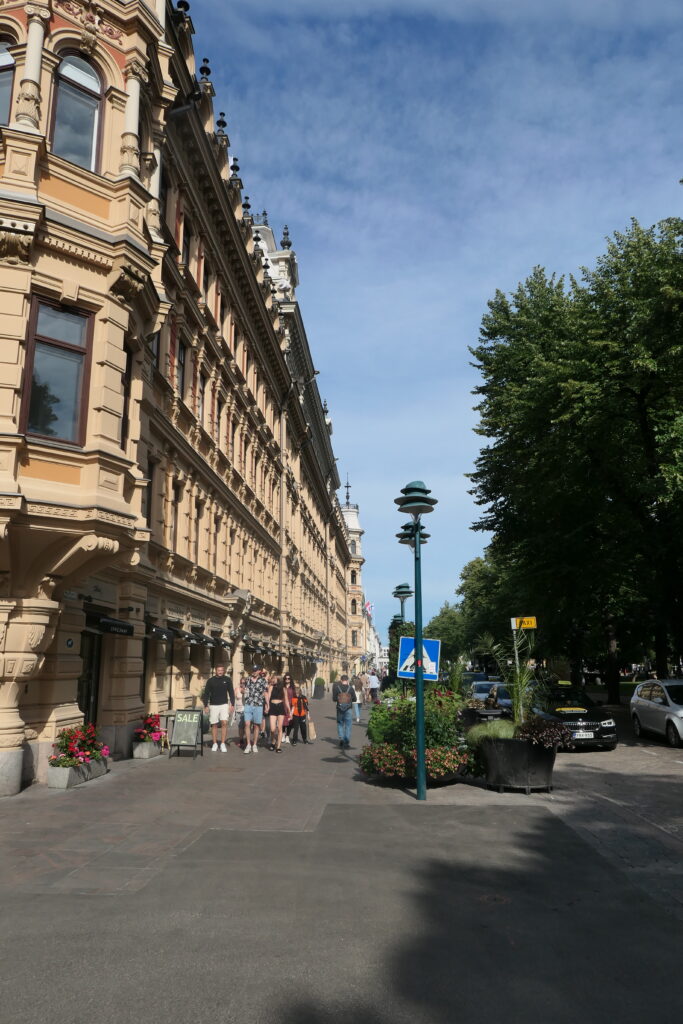
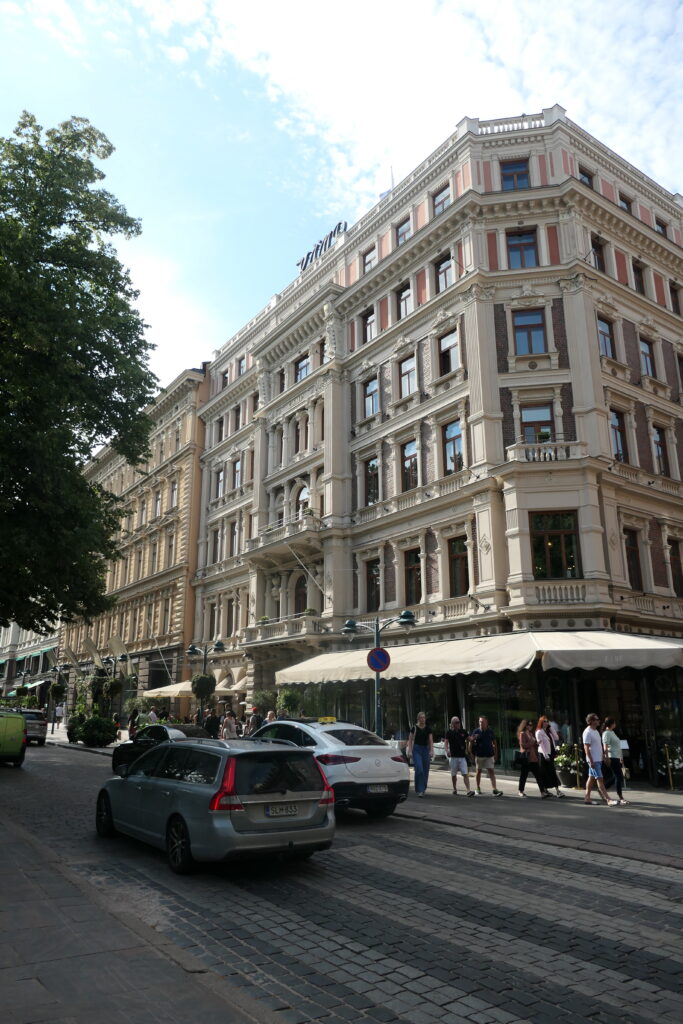


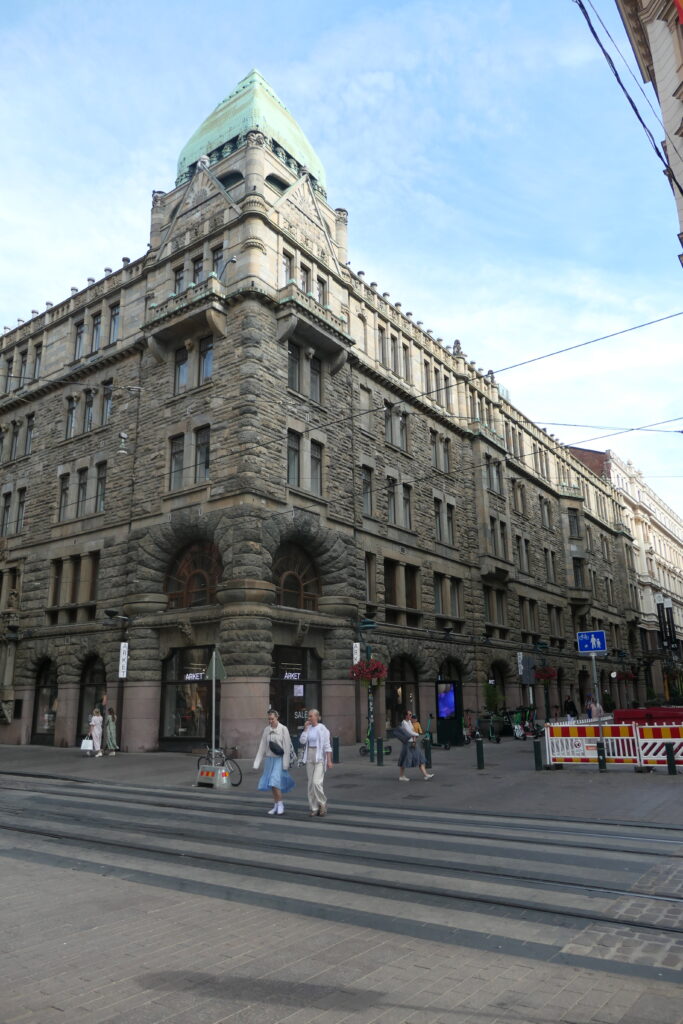


Helsinki Metro
Getting around the city is relatively simple, as their metro system is really to navigate. The whole thing works on an honesty system, with occasional checks whilst on the trains. We saw no checks in the time we were there – although we did buy tickets. Tickets can be bought from the machines at the entrance to the stations, and the instructions are all in English.
We really liked the architecture, and the whole place was spotlessly clean 🙂

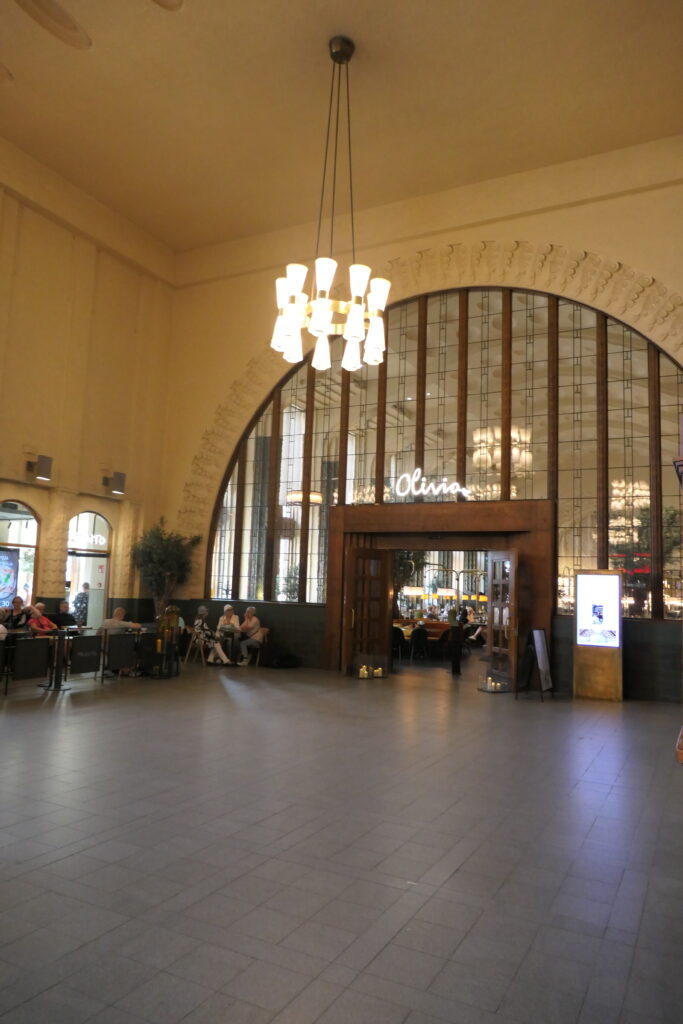
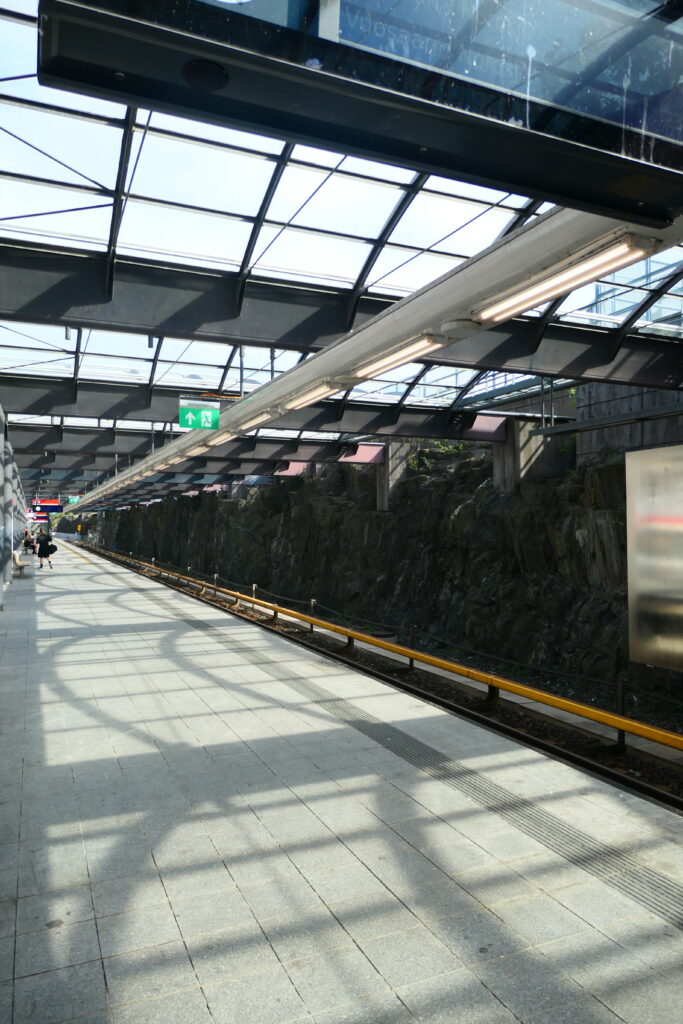
Inari
Inari is a municipality in the northernmost part of Finland, located in the Lapland region. Known for its stunning natural beauty, it is home to vast forests, lakes, and the pristine Inari Lake, which is central to local life. The area is culturally significant, as it is the heart of Sámi culture, the indigenous people who have lived there for centuries. Inari is famous for its traditional Sámi reindeer herding practices and unique art forms. Inari is also home to the Sámi Museum and Nature Centre, which showcase the rich heritage and natural wonders of the region, including the breathtaking Northern Lights.


Jalasjärvi
Jalasjärvi, located in Southern Ostrobothnia, Finland, is a rural municipality rich in natural beauty and history. Among its notable landmarks is the Aittoonmäki Old Windmill, a traditional Finnish windmill that dates back to the 19th century. The windmill stands as a testament to the region’s agricultural heritage and is a popular site for visitors interested in Finnish history. The tight-knit community celebrates local traditions through festivals and events, making it a peaceful and culturally rich destination for both locals and tourists.


Leppäjärvi
Leppäjärvi is a remote village located in Enontekiö, a municipality in the far northwest of Finland, within the Lapland region. Situated near the Finnish-Norwegian border, it is part of the vast Arctic wilderness, offering pristine natural beauty. Surrounded by dense forests and rugged terrain, the lake is an ideal destination for outdoor anyone looking for tranquility and adventure.


Muotkajärvi
Muotkajärvi is a serene and picturesque lake situated in the Enontekiö region of Finnish Lapland, halfway between the Swedish and Norwegian borders. Known for its stunning natural beauty, Muotkajärvi is surrounded by vast wilderness, with dense forests, rolling hills, and the rugged landscapes characteristic of the Arctic.
The lake is popular for outdoor activities such as fishing, hiking, and birdwatching, especially in the summer months. In winter, it offers opportunities for snowshoeing and cross-country skiing. The area remains largely untouched by urban development, providing a peaceful and pristine setting for nature lovers and adventurers seeking solitude in Finland’s far north.

Olkkajärvi Lake
Lake Olkkajärvi is a picturesque lake located in the Lapland region of Finland, near the town of Kemijärvi. The surrounding forests offer a peaceful and serene environment, making it an ideal location for a break from driving. It’s also a great place for wildlife watching and enjoying the Northern Lights in winter.


Raahe
Raahe is a lovely town located on the northern coast of Finland, along the shores of the Bothnian Sea. Founded in the 17th century, it is known for its well-preserved wooden houses and rich maritime history. Today, it offers a mix of historical landmarks, such as the Raahe Museum and the Old Town, alongside the Kari Juva Sculpture Park. The town is also famous for its annual Raahe Festival, celebrating local culture and traditions. We used one of its suburbs, Pattijoki, as a base to explore the area.










Rovaniemi
Rovaniemi is the capital of Lapland, Finland, and lies just below the Arctic Circle. It is famously known as the ‘official’ hometown of Santa Claus, attracting visitors worldwide to the Santa Claus Village. It manages to blend modern life with rich traditions, offering unique Arctic experiences, such as husky safaris, reindeer rides, and opportunities to see the mesmerizing Northern Lights. Rovaniemi also has a vibrant cultural scene, with attractions like the Arktikum Museum, showcasing the region’s natural and cultural history.
We were struck by the difference between the Arctic Circle centre in Norway and Rovaniemi. Also, we didn’t know that Santa serves burgers and pizzas during his off-season in summer!


Simo
Simo is a small town of fewer than 3,000 people (2024) in Lapland, Finland. It’s located on the shores of the Bothnian Bay, near the city of Kemi, and is mostly a rural area, consisting of multiple small village communities. It’s a great place to visit if you want to see real Finnish life.


Vaasa
What a great City Vaasa is! Loads to do and see! Great nightlife! Great university! Lovely setting! Well worth a visit!
Vaasa is located on Finland’s western coast, and is a lively city known for its beautiful coastal views and vibrant cultural scene. Home to the University of Vaasa, a hub for education and research, the city attracts students from around the world, which gives the city a really vibrant feel.
We stayed at the popular campsite, Top camping, which is located on an island. It’s a really friendly site that has access to a beach and was a really peaceful retreat by the sea. The campsite is perfect for using as a base to explore the natural beauty of the area.
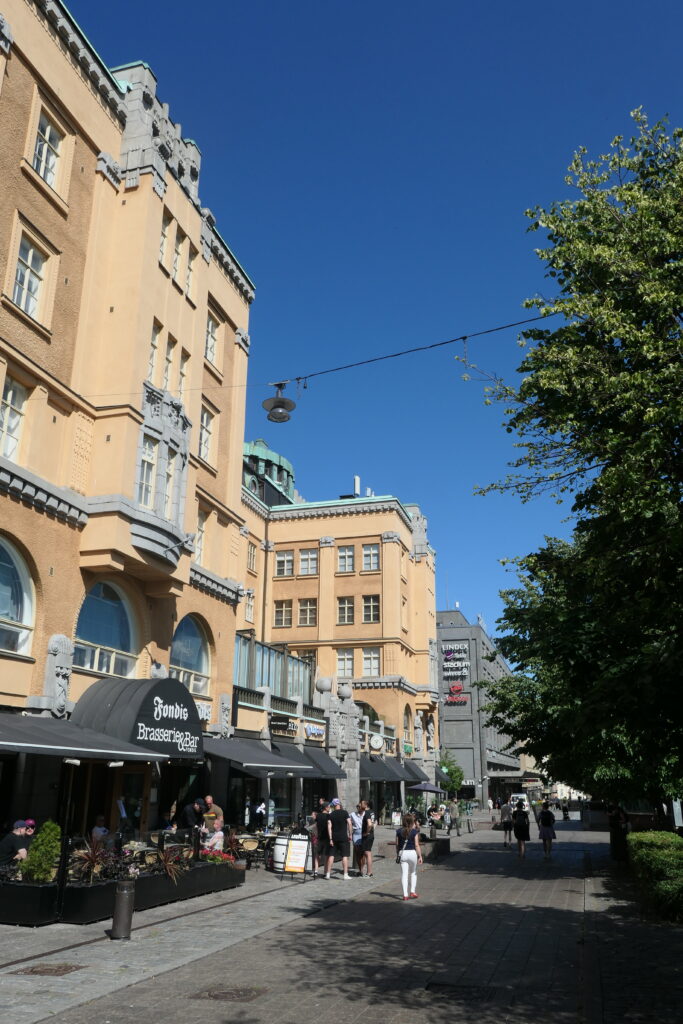
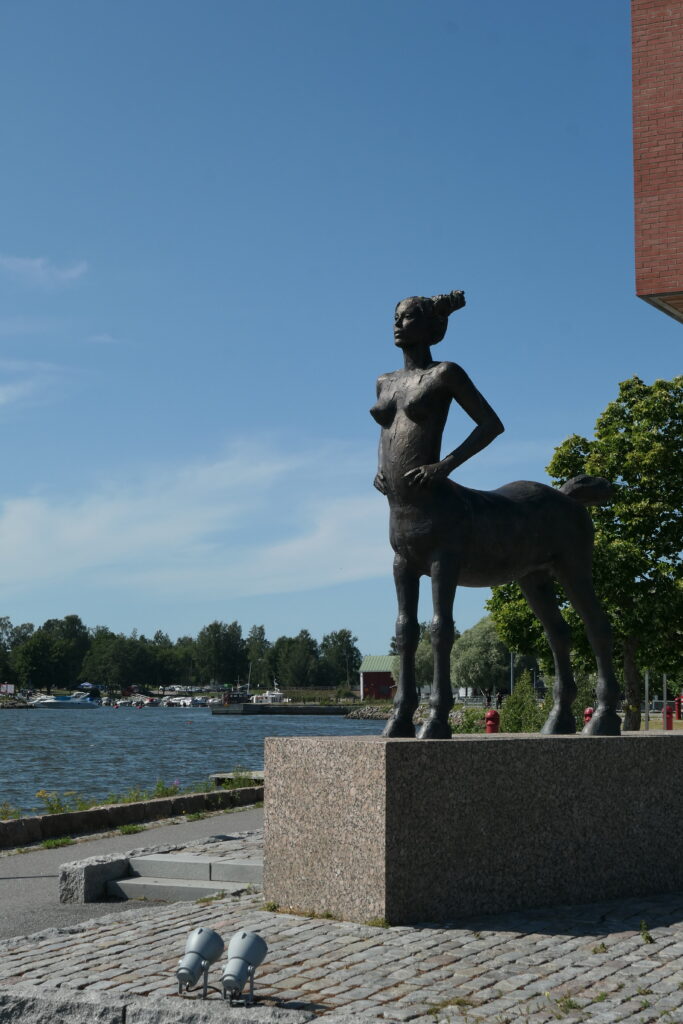


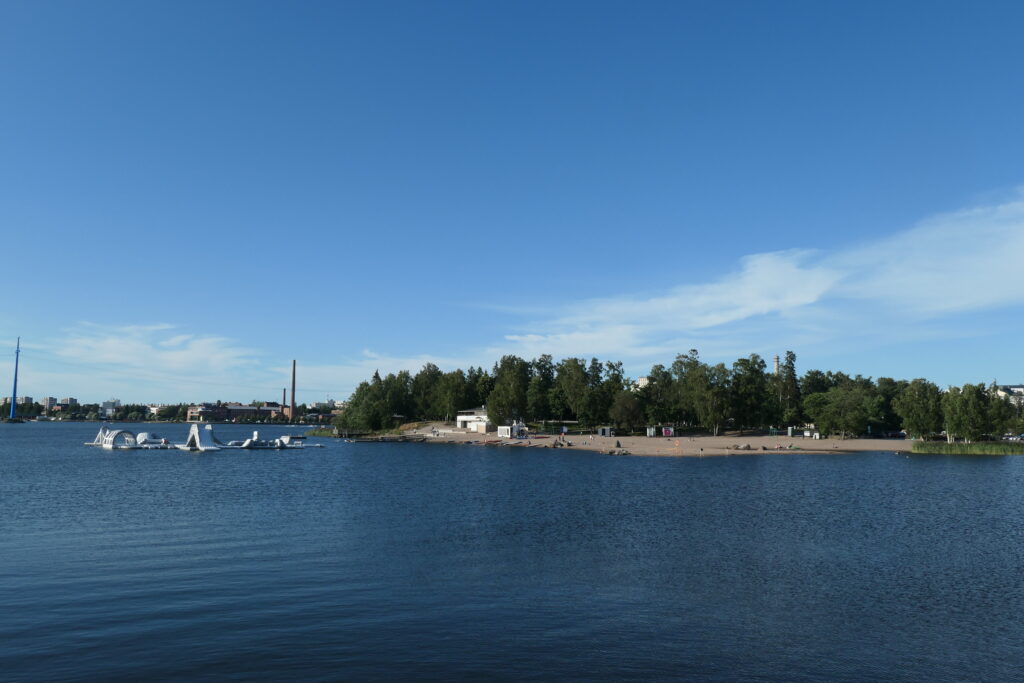
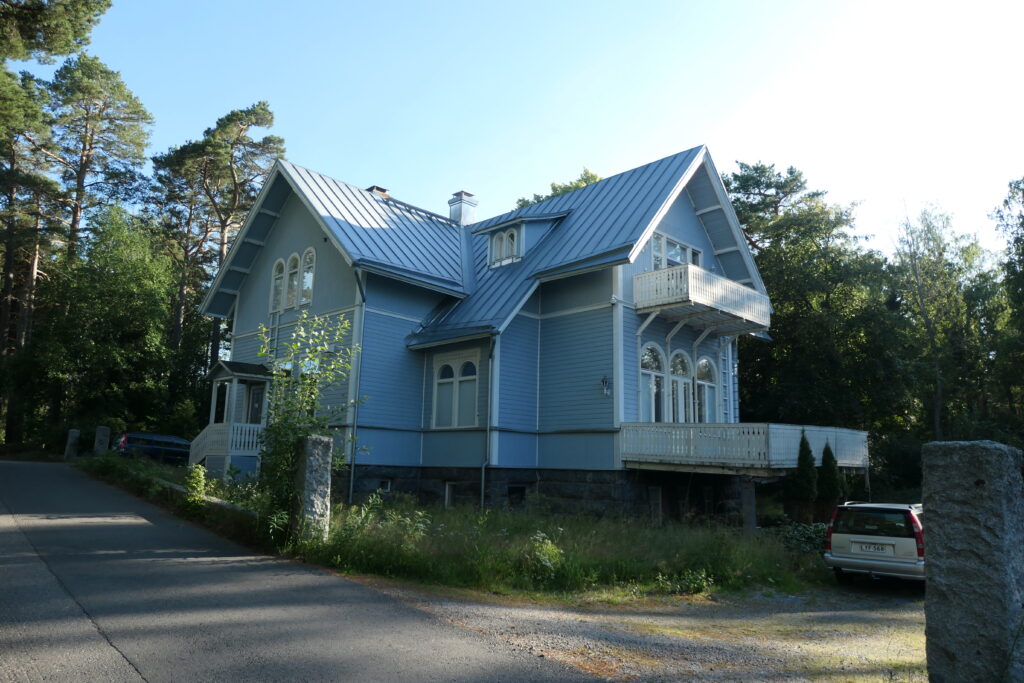



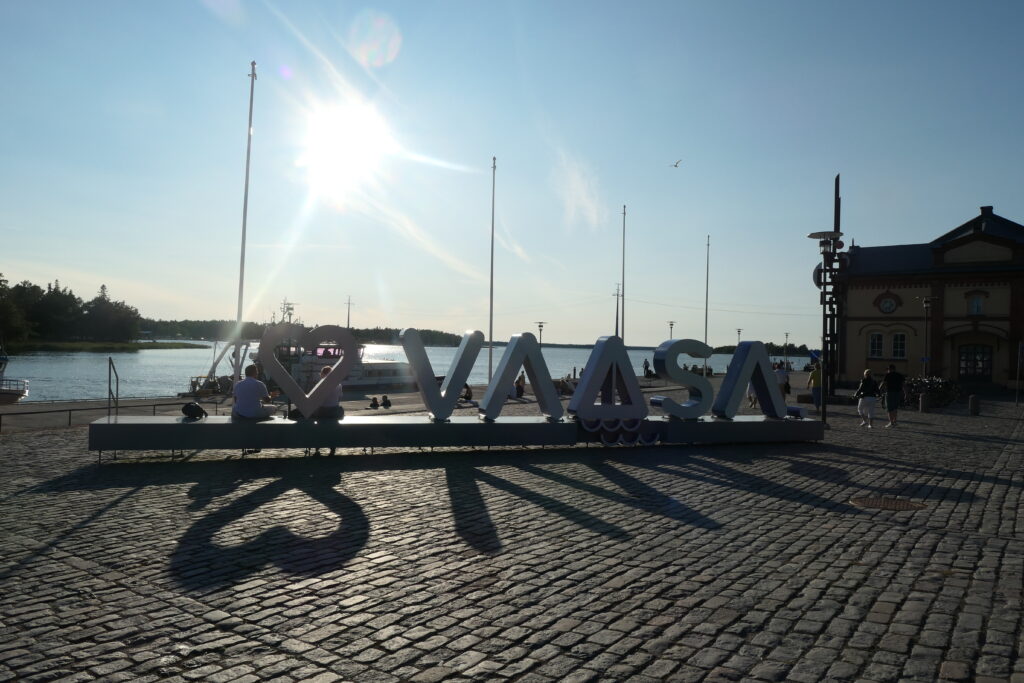





Vuostimo
Vuostimo is a small village located near Kemijärvi in Finnish Lapland, known for its rural charm. It’s situated amidst Lapland’s vast forests and lakes, and is a great place for a peaceful escape into nature. The village is part of the municipality of Kemijärvi, which is renowned for its stunning natural landscapes and outdoor recreational opportunities.






What’s it like to drive in Finland?
As with almost everywhere on the continent of Europe, they drive on the right hand side of the road in Finland.
As the country is pretty big and the population is relatively small, there’s not a lot of people on the roads! And as many of the roads are also so straight, it’s easy to overtake if necessary … which makes a change from Norway with its millions of tourists!
However, we also found that many people are quite happy to sit six feet behind you for hundreds of miles without overtaking, which is plain weird!
The long straight roads
Finland has some of the straightest roads in Europe – they can go on and on and on and on! Because of this and the fact that, like Sweden, they mainly travel though forests and beside lakes, some of them can be quite dull. A good example of this is the E8 road from Kilpisjärvi to Karesuando road through far north western Finland, that runs along the Finnish / Swedish border from the border with Norway .
A better road to travel on from Norway is the number 92, Karigasniemi to Karhujärvi road, which has many more curves, more varied forest, hills and many great undulating roads.



As are many other roads in Finland!
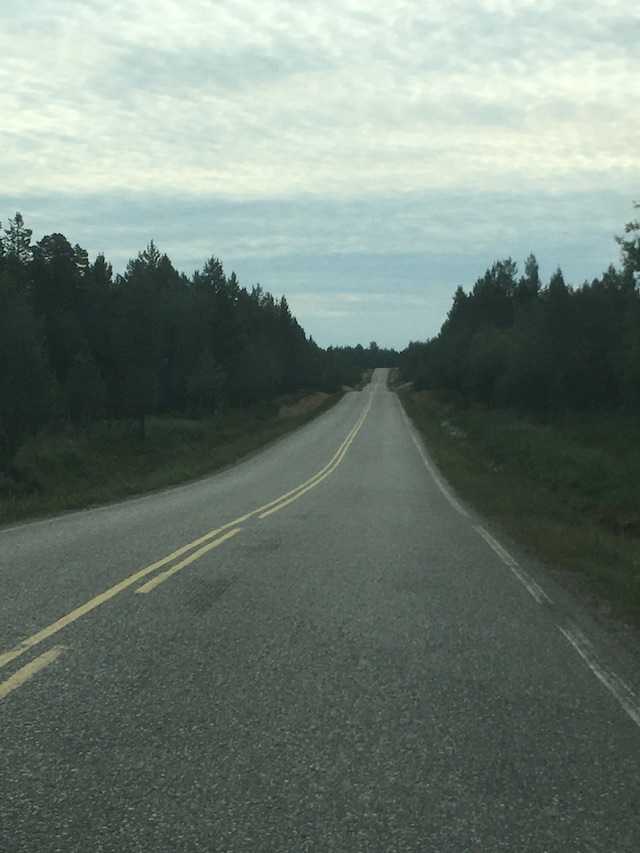
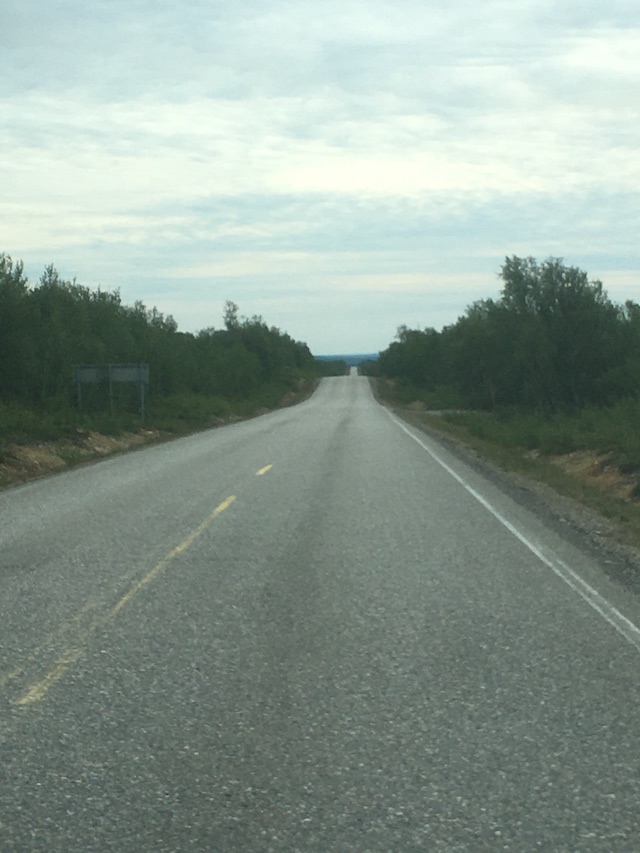
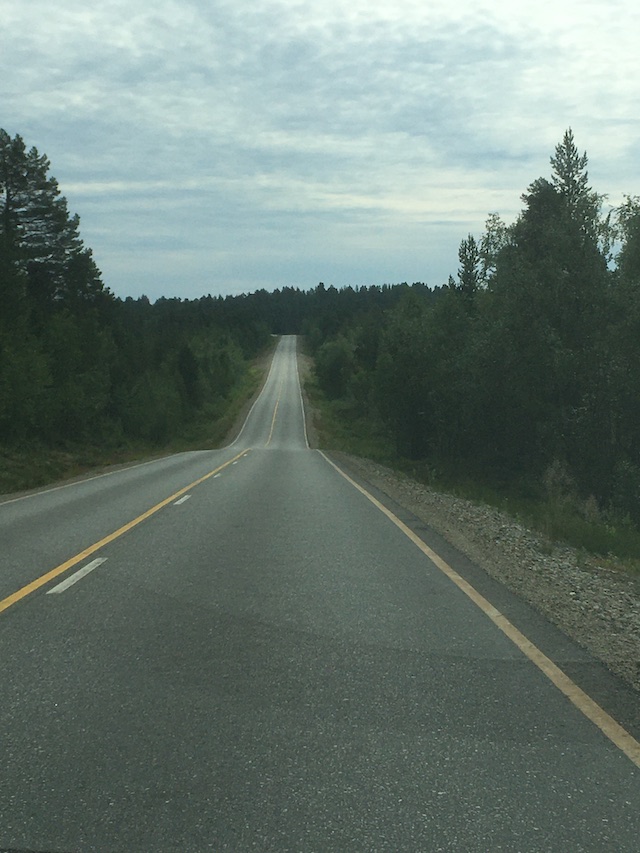
Rally driving in Finland
Many roads in Finland are unsurfaced, which adds a little bit of excitement to your driving, requiring you to concentrate 😉 We could see where the Finnish passion for rally driving comes from!


We did find one particularly fantastic road which, if you’re interested in rally driving, you should take note of: the E63 from Sodankylä to Vuostimo. Great road to take at speed – save for the occasional pothole!
Classic cars in Finland
Similarly to Estonia, there also seems to be a large contingent of car enthusiasts who’ve renovated older American cars – nice!




Do you require an international driving permit in Finland?
We’ve created a dedicated page to driving abroad, which answers this question, and more, which you might find helpful.
Can you use your UK driving license when driving through Finland?
We’ve created a dedicated page to driving abroad, which answers this question, and more, which you might find helpful.
Do I need a carnet de passages to drive in Finland?
We’ve created a dedicated page to driving abroad, which answers this question, and more, which you might find helpful.
What are the speed limits in Finland?
The speed limits for cars in Finland are:
- 30 mph (50 km/h) for urban driving
- 50 mph (80 km/h) outside of built up areas
- 60 mph (100 km/h) on dual carriageways
- 70 mph (110 km/h) on motorways
What currency do they use in Finland?
In Finland they use the Euro. The use of credit / debit cards is now widespread. Travellers cheques are accepted. There are lots of ATMs.
You should make yourself aware of the amount that your bank charges you for using credit and debit cards abroad. Often credit cards are cheaper for purchasing items directly, and for withdrawing cash from ATMs.
What language do they speak in Finland?
They speak Finnish in Finland. Swedish and Russian are also spoken, although as minority languages. In the capital, English is also spoken by the younger generations.
In our experience, many speak English everywhere we’ve been. As a matter of fact, I was in a provincial little shop buying some food, and the elderly lady spoke to me in Finnish – I looked blankly for like a second, and she said, ‘you know, you can just ask for me to say it in English! – Do you want the receipt!’ Lol, that told me! 🙂
What time zone is Finland in?
Remember, when you’re planning your next trip to take a look at what time zone it’s in.
Do I need a visa to visit Finland?
We’ve created a dedicated, more comprehensive page on visas, which you should find helpful. Check it out!
Is wild camping legal in Finland?
Yes, wild camping is fine in Finland.
What plug / socket type do they use in Finland?

In Finland they use plug / socket type F.
Health issues in Finland
Is it safe to drink water in Finland?
Yes, it is safe to drink tap water in Finland. Bottled water is also readily available across the country.
What vaccinations are required for Finland?
This NHS website is kept up to date with all relevant information on vaccinations in Finland.
Phones in Finland
What is the country calling code for Finland?
The country calling code for Finland is +358
What are the emergency phone numbers in Finland?
- The emergency number for police in Finland is: 112
- In Finland, the emergency number for ambulance is: 112
- The emergency number for fire in Finland is: 112
If you’ve got some useful info that you’d like to share, let us know!
Don’t forget to check out all the other pictures!
